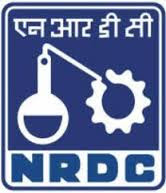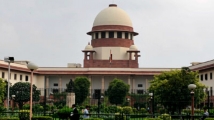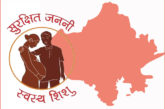1) Centre unveils faster-maturing pulses variety
- Current Affairs The central government unveiled a new, early maturing variety of arhar (red gram). It apparently gives a yield of 20 quintals, the same as many existing varieties but maturing in 120 days, instead of the usual 170-180 days. Called PUSA Arhar-16, it might even be issued for commercial use in January itself, so that farmers could plant by the next kharif season.
- The new variety gives an average yield of 20 quintals, which though is same as many existing varieties, but more crucially take lesser time to mature making it suitable for northern plains.
- It would give farmers ample time to grow potato, mustard or wheat in the rabi season thereby making this arhar variety suitable for northern plains.
- An early release by 2017 January bypassing he mandatory three years multi-field testing parameters would enable the country achieve self-sufficiency in pulses by in the next 3-4 years.
- Pulses production in India is lower than the demand of 23-24 million tonne (MT). The output had fallen in the last two years due to the drought which sent the prices through the roof, forcing the government to take several measures to check inflation in pulses.
- Arhar prices in some retail markets had touched to Rs 200 per quintal in 2015 due to supply shortage. India usually produces around 2-3 tonnes of arhar annually, which in 2016 is expected to reach an all-time high 4.29 million tonnes due to record rise in area.
- The country`s pulses output is estimated to increase to 20 MT in 2016-17 crop year (July-June) on account of good monsoon after two drought years. But the production is still lower than domestic demand of 23-24 MT. Pulse production fell to 16.47 MT in 2015-16 crop year from 17.15 MT in the previous year.
2) Kerala becomes 3rd Open Defecation Free state

- Kerala has become the third Open Defecation Free state in the country. The announcement was made by the Drinking Water and Sanitation Secretary Parameswaran Iyer in New Delhi on 1st November. Earlier, Himachal Pradesh and Sikkim had declared themselves Open Defecation Free. Over 1 lakh villages across the country have become ODF.
3) NRDC inks 5 tech licensing pacts

- National Research Development Corporation (NRDC) has signed five technology licensing agreements on a single day.
- The technologies licenced include three Ayurvedic technologies to Ayur Force organics, New Delhi. The technologies have been developed by CCRAS — Ayurvedic anti-diabetic drug and one for treatment of Rheumatoid Arthritis; CSIR-NEIST a arthritis herbal formulation. Swadesi Ayurved, Hardwar acquired the Ayush-82 technology.
- The other licenced technology includes a process for isolation of a major harmful oxidant i.e., parabenzosemiquinone from cigarette smoke.
- The know-how was developed by Kolkata University. The R&D was funded by CSIR. The technology is licensed to Lambda Pvt Ltd, Delhi, says H Purushotham, Chairman & Managing Director of the Corporation. He said that the vision of NRDC is to sign at least one technology licensing agreement a day is close to realisation and thereby assist the Start-Up India and Standup India Missions of the Centre in a big way.
4) Google ties up with ASI for virtual tour of monuments

- Google has tied up with Archaelogical Survey of India (ASI) for 360 degree virtual tour of 280-odd monuments across the country.
- ASI had given the permission to Google for creating the virtual tour, which would be available in the maps. Some of the major monuments are Taj Mahal, Victoria Memorial and the ruins of Hampi, adding eight were from Kolkata. Google has launched an array of products in India like offline view of maps, live traffic alerts and inclusion of unknown places on the maps by local guides.
5) PM Modi outlines 10-point agenda for disaster risk reduction

- Indian Prime Minister Narendra Modi on 3rd November sought greater cohesion in international response to disasters. Inaugurating the Asian Ministerial Conference on Disaster Risk Reduction in New Delhi, Mr Modi outlined a ten-point agenda for renewing efforts towards disaster risk reduction. He said, all development sectors must imbibe the principles of disaster risk management and a network of universities should be developed to work on disaster issues.
- The Prime Minister called for greater involvement and leadership of women in disaster risk management. He said, opportunities provided by social media and mobile technologies should also be utilised.
According to Modi:
- India has now fully functional Indian Ocean Tsunami Warning System.
- Countries have to wholeheartedly embrace the spirit of Sendai Framework which calls for an all-of-society approach to disaster risk management.
- Aim of the 3-day conference is to find ways for better management of disaster risk. The conference will come out with a declaration consolidating the political commitment of governments towards preventing and reducing risk as well as strengthening resilience by accelerating implementation.
6) Maharashtra first state to launch cyber police stations in all districts

- Maharashtra is converting 42 state-of-the-art cyber crime labs into cyber police stations. The move is part of BJP-led government`s strategy to take on cyber criminals. Maharashtra is the first state in the country which will have a cyber police station in each district.
- Any offence related to cyber crime will be registered in these police stations at the district level. Additional cyber police stations will also be set up in some cities. Cyber police stations will also be set up at police commissionerate and Range IG offices.
- Cyber crime in Maharashtra has risen by a whopping 142.1 per cent in the last few years adding that the state is facing increased cyber crime cases in tier-II cities and also in rural areas.
7) Voter has right to know candidate’s qualification: Supreme Court

- Every voter has a fundamental right to know the educational qualification of a candidate, who has a duty not to lie about his or her academic past, the Supreme Court has held.
- The verdict came on appeals filed by Mairembam Prithviraj alias Prithviraj Singh and Pukhrem Sharatchandra Singh against each other challenging the judgment of the Manipur High Court. The HC had declared as “void” the election of Mr. Prithviraj in the 2012 polls on an NCP ticket against Congress nominee Mr. Sharatchandra from the Moirang Assembly seat in Manipur. It was alleged that Mr. Prithviraj, in his nomination papers, had said he was an MBA, which was found to be incorrect.
- Upholding the HC verdict, Justice Rao said the apex court was not “in dispute that the Appellant did not study MBA in Mysore University” and the plea that it was a “clerical error” could not be accepted.
- “Since 2008, the Appellant was making the statement that he has an MBA degree. The information provided by him in the affidavit filed in Form 26 would amount to a false declaration. The said false declaration cannot be said to be a defect which is not substantial,” the judgment said.
8) Govt launches Pradhan Mantri Surakshit Matritva Abhiyan for pregnant women

- Union Health Minister J P Nadda on 4th November launched Pradhan Mantri Surakshit Matritva Abhiyan in New Delhi to improve health care facilities for pregnant women.
- Under the scheme, pregnant ladies will be given free health check-up and required treatment free of cost on 9th of every month. The scheme will be applicable for pregnant women in all Government hospitals across the country.
9) India, Venezuela sign deals to increase oil production

- India and Venezuela have signed an oil production deals worth about 1.45 billion US dollar to increase oil production. The agreement was signed between India’s Oil and Natural Gas Corporation (ONGC), Venezeulas Petroleos de Venezuela SA (PDVSA), and Venezuela’s consortium Delta Finance BVin Caracas, Venezeula on 4th November.
- The agreement comes amid a severe economic crisis in Venezuela, and it is seen as a way to boost oil production, pay off debts, obtain funds from other foreign partners, and increase the country’s oil income. The Indo-Venezuelan partnership, created in 2009, is expected to double the San Cristobal field daily oil production from 20,000 to 40,000 barrels of oil.
10) NSAs of India, Japan hold bilateral consultations

- National Security Advisors of India and Japan on 5th November held bilateral consultations in New Delhi.
- During their discussions
- Indian National Security Advisor – Ajit Doval
- Japan National Security Advisor- Shotaro Yachi
- They shared a view that the Special Strategic and Global Partnership between the two countries is a key partnership for promoting peace, prosperity and development in the region and the world.
- The discussions of the two NSAs centred on important issues covering bilateral, regional and global dimensions and helped to further underscore the commonalities of views, shared interests and need to promote universal values.
- They agreed on the need for the global community to make concerted efforts to meet the pressing regional and global challenges.
- The two sides also reviewed the preparations for Prime Minister Narendra Modi`s forthcoming visit to Japan. They agreed that the visit of the Prime Minister to Japan is the most significant event in the bilateral relations 2016 and will further underscore the strong bonds of friendship that India and Japan share.